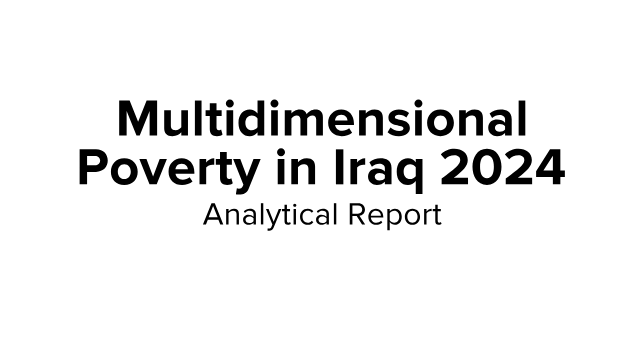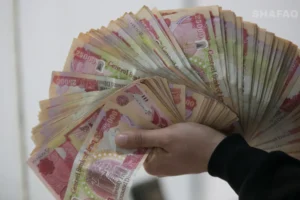
By John Lee.
The newly-published Iraq Multidimensional Poverty Index (MPI) analytical report has made seven recommendations to reduce poverty in Iraq:
Enhance coordination between ministries and authorities to reduce poverty, using targeted plans based on deprivation levels and holding regular committee meetings.
Establish a schedule to collect and update multidimensional poverty data every four years, with annual partial surveys for tracking progress.
Align poverty reduction with SDGs and Iraq Vision 2030, ensuring integration and consistency in national reporting and assessment.
Strengthen the social protection system (insurance, assistance, labour policies) and make it adaptive to shocks, including climate risks.
Build stronger links between federal and local governments, leveraging funds like the Social Development Fund and Reconstruction Fund for the poorest areas.
Promote advocacy and monitoring through media, civil society, and NGOs to improve transparency and governance.
Secure sufficient and flexible budgets for the upcoming National Poverty Reduction Strategy, with a focus on program-based performance budgeting.
In more detail:
Achieving an advanced level of interaction between the ministries and various authorities concerned with poverty reduction in its various dimensions under the direct supervision of the Ministerial Council for Human Development by linking poverty reduction activities to the concerned ministry, each according to its field, which falls under the multidimensional poverty measurement, and monitoring the percentage contribution of deprivation to that dimension (or its elements) and what is targeted to be reduced. This requires adopting a double plan based on formulating special priorities according to the governorate deprivation rate on one hand and the more deprived sector based on the analysis results mentioned in this report. This requires regular meetings of the Higher Committee for Poverty Reduction Policies at the Ministry of Planning.
Adopt a regular schedule to provide data on which the measurement of multidimensional poverty is based on an appropriate periodicity (every four years) and annually update data using the partial survey method, to track multidimensional poverty paths and its spatial gaps.
Coordinate national efforts to follow up the progress in achieving the SDGs and multidimensional poverty reduction efforts to ensure integration in the assessment process, as the MPI, as an official measure of poverty, is supposed to be an important tool for accounting and reporting on the SDGs as well as in reporting on the progress in Iraq Vision 2030.
It’s important to emphasize the role of the social protection system in reducing poverty. Strengthening its key components-social insurance, social assistance, and active labor market policies-are important for poverty reduction. Additionally, adaptive and shock-responsive social protection can help mitigate risks from future shocks, including climate shocks considered in the Iraq MPI framework.
Multidimensional poverty reduction policies require ensuring real linkages between the federal government and local governments, especially with the presence of an executive department for poverty reduction policies in order to benefit from mutual opportunities in supporting these policies, especially the Social Development Fund in the MOP and the Reconstruction and Development Fund for the poorest governorates in the Prime Minister’s Office.
Consider advocacy policies at media level on the one hand and at the level of civil society organizations and non-governmental organizations on the other hand as part of the monitoring strategy to ensure transparency and governance.
Ensure the achievement of appropriate budgets to achieve the objectives of the upcoming National Poverty Reduction Strategy in Iraq, to be adopted within the government’s directions in adopting the programs of this strategy, even exceptionally within special budgets based on the concept of programs and performance budgeting.
Click here to download the full report.
To browse our comprehensive library of reports on Iraq, click here.
(Source: UNDP)





